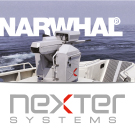 Kalvari sent to the dock for setting afloat to Naval Dockyard (Mumbai). Picture: Indian Navy |
|||
Unlike ships where equipment installation takes a long
time after launching, submarines are completely fitted out at the time
of floating out. The boat is therefore now slated to undergo rigorous
harbour trials and tests which would certify each system to its fullest
capacity. She is slated to commence trials at sea in a few months.
Rear Admiral RK Shrawat (Retd), Chairman and Managing Director, MDL said on the occasion that setting afloat of the boat is a historic milestone, which has been achieved through the hard work and perseverance of all executives and operatives of the Submarine Yard of MDL and other supporting organisations. The accomplishment of this milestone would initiate commencement of sea trials which would eventually lead to commissioning of the boat into the Indian Navy in September 2016. |
|||
 The Submarine set afloat at Naval Dockyard (Mumbai). Picture: Indian Navy |
|||
|
Physically, Scorpene
submarines are 67 meters long 6.2 meters wide and have 1,550 tones
displacement. The Scorpene submarines would pack a potent punch. The state-of-art
features of the Scorpene include superior stealth and the ability to launch
a crippling attack on the enemy using precision guided weapons. The attack
can be launched with torpedoes, as well as tube launched anti-ship missiles,
whilst underwater or on surface. The Stealth features give it invulnerability,
unmatched by many submarines.
The Scorpene Submarine is designed to operate in all theatres including the Tropics. All appropriate means of communications are provided to ensure interoperability with other components of the Navy. It can undertake multifarious types of missions typically undertaken by any modern submarine i.e anti-surface warfare, anti-submarine warfare, intelligence gathering, operations by special forces and mine laying etc. Mazagon Dock is constructing six Scorpene class submarines (Project 75) under transfer of technology from DCNS, France. Subsequent boats will be delivered at gaps of nine months from each other. The project is expected to be completed by 2020. |
|||
First Scorpene Class Submarine for Indian Navy Set Afloat at Naval Dockyard Mumbai
- Posted On










